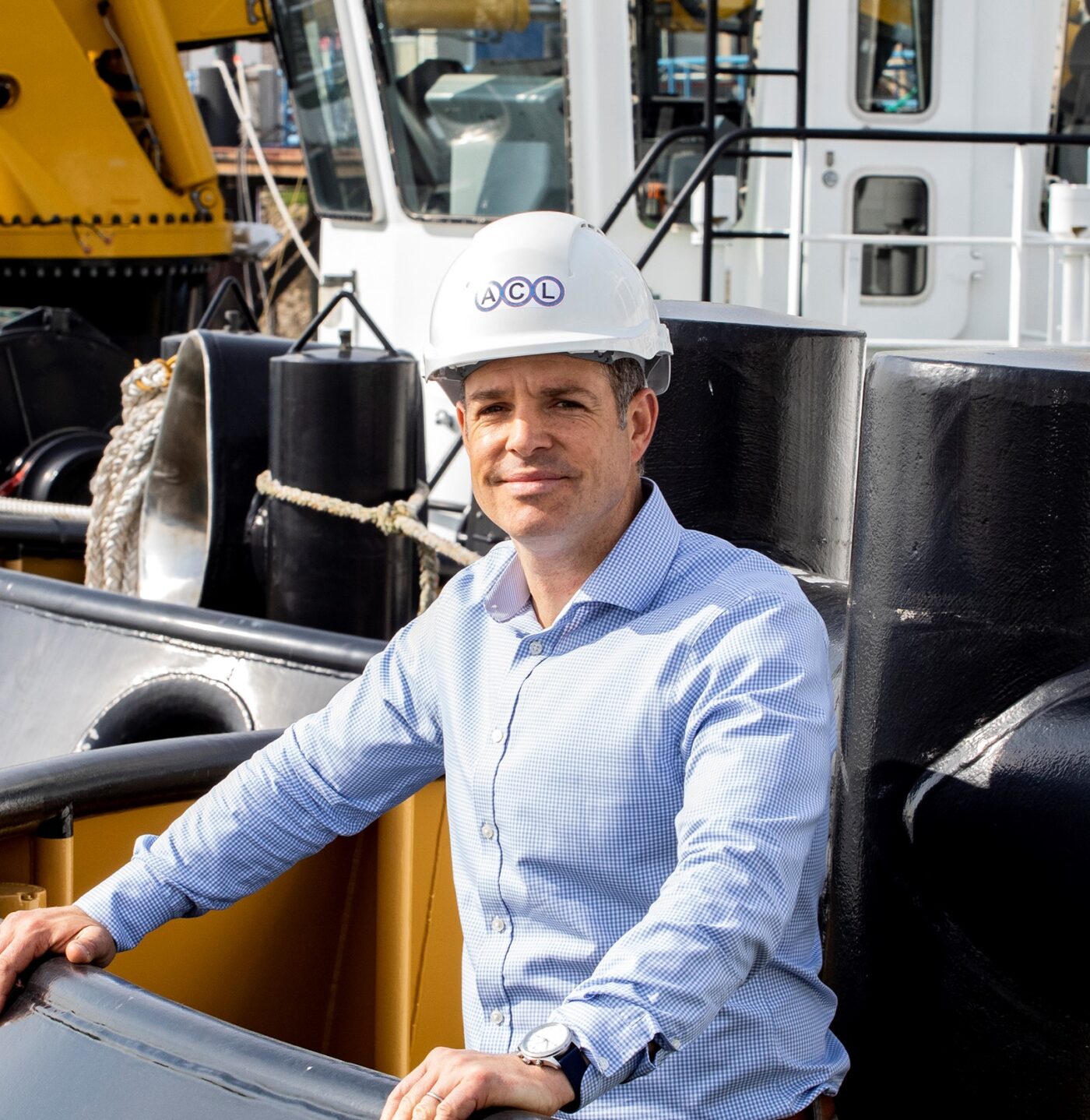Meet Alec, a UK based Workboat Shipbroker. Alec began his Shipbrokers career following service in the Parachute Regiment, today he is a well-known name in the sector.
When and why did you start ACL Shipbrokers?
I started ACL Shipbrokers five years ago, with the objective of offering owners and operators a more bespoke shipbroking service, particularly in the workboat and port tug sectors.
What was your career before this?
After growing up and studying in Scotland, I served as an Officer in the Parachute Regiment for eight years. A large part of this service was on operations overseas. This gave me a lot of hands-on experience working under pressure which taught me to think on my feet and be adaptable. It also gave me an insight into geopolitics and the importance of world trade.
I had developed an interest in shipbroking and when an opportunity presented itself to work with DSB Offshore, a very well-respected broking house in London, I jumped at it. This was a great introduction to the industry, during which time I passed my Chartered Shipbroking exams and built the foundations of my career over the following seven years.
Can you remember your first experience with boats?
I have always had a passion for the sea taking every opportunity to get onboard vessels of any size, whether sailing as a youngster or volunteering for waterborne operations in the military. Today, whenever possible, I attend all vessel inspections to increase my knowledge of the way they operate. I still get a thrill being out on the water.
What are your specialisms?
As a company, Sale & Purchase of workboats, new and second hand, is our bread and butter. These range from marine construction and aquaculture boats to diving support vessels, both in the UK and on a worldwide basis. We also have a thriving Charter business where we assist owners in finding work for their vessels, both time charter and bareboat, and provide charter solutions to end clients on a project-by-project basis.
With discretion and integrity at the core of our approach, we are increasingly acting for clients as a trusted member of their team; assisting with organising independent surveys, deliveries and towage, amongst other services, often in far-flung parts of the world. This flexible and economic service is proving a real differentiator for us.
Where do you operate from and where have you worked?
We have our registered office in London, but I have been operating from a home office in Edinburgh for many years; efficient use of technology allows me to keep an eye on the business whilst being out and about gathering market intelligence and being of more value to my clients. I am happiest out on the road inspecting vessels and visiting clients anywhere I am required.
Have there been any ‘stand-out’ projects?
We were asked last year by a close Canadian client to search for a specific size and type of multipurpose workboat. After conducting very thorough research, I inspected a vessel with them in the Caribbean. Having priced up all delivery options, however, and based on our deep knowledge of the market, we ended up securing a very competitive newbuild vessel out of Europe. Our innovative approach resulted in the client getting exactly what he sought with an extremely attractive delivery cost – he was so pleased he also bought a sister vessel!
In another memorable engagement, we assisted the owners in selling a flattop barge from the South Coast of the UK to a Buyer on the Thames. We arranged the pre-purchase survey for buyers, the tow from the South Coast to the mouth of the Thames, and the taking over of the tow by a Thames-based tug. I also joined the crew for the tow up the Thames to the barge’s new home, which was a real highlight, as I was involved in every step of the process.
Our aim is to make our clients’ lives easier, not just offering them exactly what they are looking for based on our extensive market knowledge, but facilitating the whole transaction smoothly.
How do you see the global environmental and decarbonisation objectives affecting vessel markets over the next few years?
These will undoubtedly have a big impact on our sector. Managing vessels with a 30 to 40-year lifespan against such a rapidly changing regulatory and technological backdrop is a huge challenge. This is especially true in vessels such as workboats which can lack space in the engine room to retrofit mitigating solutions. Consequentially, residual values are likely to suffer.
As such we are doing a lot of work with clients to review their fleets’ efficiency and structure, helping them to future proof their businesses.
Do you see the European shipbuilding and manufacturing market remaining competitive against lower prices coming from distant competitors?
The global pandemic has made us pause and think about how and where we source goods from, including vessels. Home grown solutions are coming to the fore, with local production increasingly as prized as the lowest cost supply from abroad.
ESG considerations are also going to be more important in the supply of newbuild vessels over the coming years which may well play a more significant role than pure price alone.

